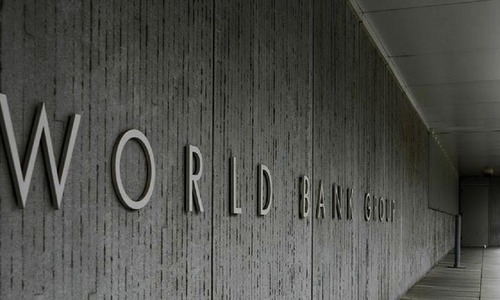ISLAMABAD: The government will make all-out efforts to address three to four outstanding issues, including tax harmonisation, for securing loans worth over $800 million from the World Bank in the next one month.
Pakistan has already received $400m for reforms in tax administration out of a total of $1.2 billion loans of the World Bank, Finance Minister Shaukat Tarin told Dawn on Saturday. “We need this money and will take all prior actions,” he said.
On tax harmonisation, the minister said that he would hold a meeting with provincial finance ministers in the next seven to 10 days to resolve the outstanding issues. He said several meetings had already been held in this regard at the technical level.
According to a World Bank’s document, harmonisation involves an agreement among the federal government and the provinces to apply the same definitions, principles and rates for general sales tax (GST) on goods and services.
Two panels busy preparing steps to broaden tax base
This means that federal and provincial governments would revise legislation and regulations to apply the same definitions of economic activities subject to GST on goods and services, levy of GST based on the place of sale/consumption rather than the firm’s headquarters, and preferably, but not necessarily, standardise their tax rates.
Mr Tarin agreed that there are challenges and the federal government would intervene to resolve these issues between the Federal Board of Revenue (FBR) and provincial revenue authorities. He said this issue would be resolved in the next one month. “I have a firm resolve to fix this issue,” he added.
The GST rates also needed to be streamlined. Currently, there are 26 rates for different categories of goods and several rates for services in different provinces. These multiple rates complicate both tax administration and compliance by taxpayers.
Special Assistant to the Prime Minister on Finance and Revenue Dr Waqar Masood Khan told Dawn that two sub-committees were already working to suggest measures for broadening the tax base, one of the major initiatives under the World Bank reform project.
He said the committees’ reports and the government action plan on the basis of recommendations was expected by the end of this month. Dr Khan said the government would announce a clear strategy by August 31 to broaden the tax base and bring retailers under the tax net. He said the issue of tax harmonisation with the provinces would be resolved for better tax collection and facilitation of taxpayers.
The tax harmonisation will enable the GST collection through a single online portal where firms will file, pay GST, and claim GST refunds for both goods and services at the same time. The GST harmonisation will help the FBR and provincial tax authorities to expand their tax bases and increase compliance by sharing taxpayer information.
Recent estimates by the World Bank indicate that Pakistan is collecting only half of the economy’s tax potential, leaving almost two thirds of GST liabilities and more than half of income tax uncollected. For example, most retail traders do not pay taxes.
Finance Minister Shaukat Tarin said the World Bank demands that Pakistan should notify the power sector reforms. He said the government would soon take up the issue of integrated power generation plan in next meeting of the Council of Common Interests. “We will get the plan approved in the CCI meeting,” he said.
This (approval of integrated power plan) is one of the prior actions for getting approximately $400m energy sector loan. Similarly, the government is also finalising the Circular Debt Management Plan in advance to ensure smooth sailing.
Mr Tarin said there were two other demands of the World Bank, which he did not disclose.
According to the World Bank report, Pakistan’s tax system is very complex and even people and the companies which would like to pay their taxes find that it costs them significant time and money to comply.
For example, the division of the GST on services between the federal government that collects tax on goods and the provinces that collect tax on services, means that firms that provide services across Pakistan need to file 60 tax returns a year only for GST and comply with different laws, regulations and administrative procedures for the federal level and each of the four provinces.
Published in Dawn, August 15th, 2021













































